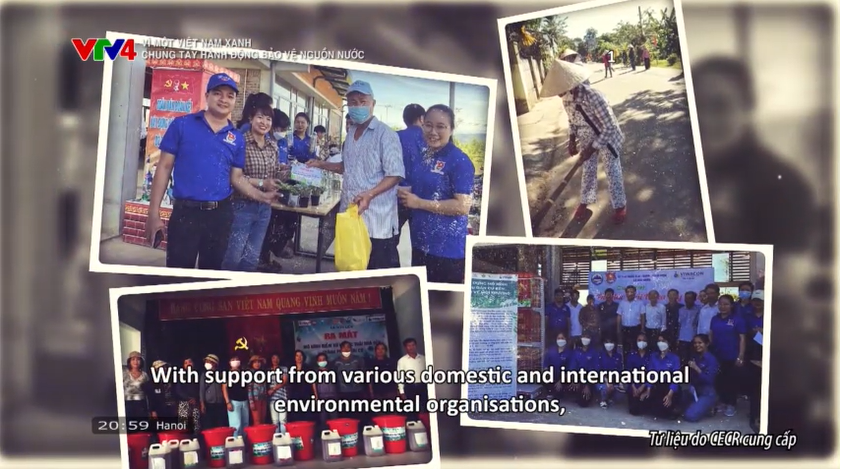12/10/2023 | Viết bởi: LTH
The process of developing an environmentally sustainable city owes much to the significant contributions of both domestic and international organizations. One such organization is the Center for Environment and Community Research (CECR).
In recent times, CECR has been actively engaged in collaborative efforts with the Department of Natural Resources and Environment of Da Nang City to raise environmental awareness among the city's residents. Notable projects include "Plastic-Free Ocean - Community Waste Collection, Segregation, and Recycling for a Healthy Community and Green City" (implemented over 2 years) and "Joint Actions for Protecting Water Sources" (implemented over 3 years), with funding provided by the United States Agency for International Development (USAID).
According to Ms. Nguyen Ngoc Ly, Chairwoman of CECR's Board of Directors, the greatest success of these two projects is the real integration of various models into the daily lives of the city's residents. These models include the participation of fishermen, street vendors engaged in waste collection, segregation, and recycling in the Au Thuyen and Tho Quang fishing ports; waste collection, segregation, and recycling in sustainable communities in Hoa Vang district and Thanh Khe district; and the transformation of vacant land into usable green spaces through recycling. Furthermore, these projects have successfully established a vast network of individuals and groups who are deeply concerned with environmental issues and solutions, from governmental bodies to business communities and citizens, all actively participating and fulfilling their environmental protection obligations.
"Through proactive actions and knowledge-sharing, the projects have garnered the involvement of community members in discussions, collaborative work, monitoring, and the identification of priority issues within their respective communities. As a result, the residents have gained a thorough understanding, concrete guidance, and scientific insights into environmental protection," shared Ms. Ly.
.

Ms. Nguyen Ngoc Ly, Chairwoman of CECR's Board of Directors, pointed out that recyclable waste (organic waste, plastic waste, and paper waste) accounts for approximately 90% of all waste. If waste segregation and recycling are effectively carried out, not only do we generate recycled products and employment opportunities, but we also establish a circular economy. This way, we can reduce waste sent to landfills by up to 90%, consequently decreasing pollution from these disposal sites.
With several years of environmental protection projects implemented in Da Nang, Ms. Ly highly commended the commitment and desire to create an environmentally sustainable city, shared by both the local government and the citizens. She emphasized that the economy of Da Nang is highly dependent on its environment, including tourism, aquaculture, logistics, and more. Without effective environmental protection, the economic development of the city may face severe obstacles. Thus, the city must prioritize waste management as a top priority, considering it a duty to protect various vital resources such as land and water.
According to: Da Nang Electronic Newspaper
Related Posts
.png)
Policy Dialogue on The Alarming Rate of Water Insecurity on Vietnam National Assembly Television

PROGRAM “POLICY DIALOGUE: REDUCING PLASTIC WASTE – THE ROLE OF THE COMMUNITY”

REPORT: “JOIN HANDS TO PROTECT WATER RESOURCES” – VTV4
.png)
VIWACON TECHNICAL ADVISORY GROUP MEETING PROGRAM
.png)
CELEBRATE WORLD ENVIRONMENT DAY 5/6/2024